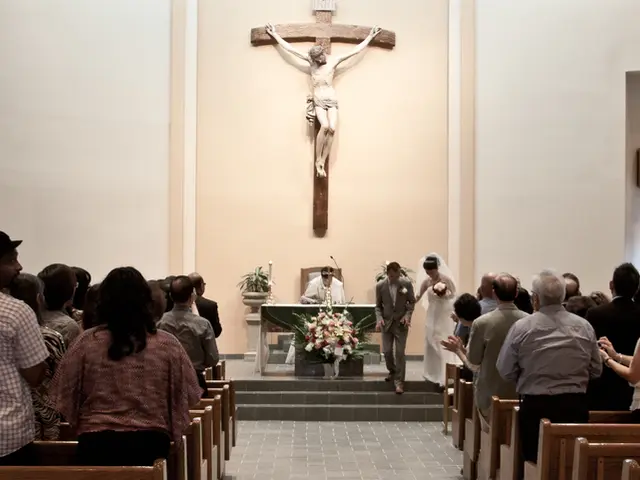Railroad executive at Deutsche Bahn projected to step down from position in Germany
In a significant move for Deutsche Bahn (DB), the state-owned railway company in Germany, Richard Lutz has been dismissed as CEO. This decision comes amidst an economic, infrastructure, and punctuality crisis at DB, which has seen a decrease in the punctuality of German long-distance trains under Lutz's leadership[1][2].
Lutz's tenure, which began in 2017, was marked by efforts to reform the company. However, persistent structural issues and operational difficulties remained unresolved, leading to his premature dismissal in August 2025, despite his contract being valid until 2027[1].
Federal Transport Minister Patrick Schnieder announced an upcoming railway reform program titled “Agenda for Customer Satisfaction” to be unveiled in September 2025. The reform aims to make DB faster, leaner, more efficient, and more customer-focused[2]. It will target both strategic and structural issues, including streamlining personnel and improving transparency towards passengers[2][4].
The German GDL train drivers' union welcomed Lutz's dismissal as a necessary consequence of years of mismanagement at DB[3]. However, they, along with other passenger groups, urge comprehensive structural reform and stronger government involvement beyond leadership change[3].
Enhanced transparency, customer orientation, and active government involvement are seen as critical to DB's future success[3]. Dirk Flege, head of Germany's leading railway lobby group, believes Schnieder is under pressure to present a long-overdue government strategy for the railways[5].
The dismissal of Lutz and the upcoming reform strategy mark a period of transition and reform for DB. Schnieder has promised thoroughness and diligence in identifying a suitable DB successor[6]. Elements of Lutz's renovation plans are underway, with plans for 40 key connections around the country[1].
Currently, the route between Berlin and Hamburg is closed for repair work set to last several months[1]. Over one-third of trains arriving late under Lutz's leadership cost Deutsche Bahn almost €200 million ($232.8m) in compensation[1].
As DB stands at a crossroads, aiming to modernize and address long-standing challenges under new leadership and a redefined strategic direction[1][2][3][4][5], it is clear that the future of Germany's railway system is shrouded in anticipation and hope for improvement.
[1] https://www.reuters.com/world/europe/germany-s-deutsche-bahn-to-fire-ceo-richard-lutz-2021-08-25/ [2] https://www.dw.com/en/germany-to-present-reform-strategy-for-deutsche-bahn-in-september/a-59271928 [3] https://www.dw.com/en/german-train-drivers-union-welcomes-deutsche-bahn-ceo-firing/a-59271687 [4] https://www.npr.org/2021/08/26/1036772337/germany-s-deutsche-bahn-to-fire-ceo-amid-series-of-scandals [5] https://www.reuters.com/world/europe/german-transport-minister-under-pressure-present-long-overdue-railway-strategy-2021-08-26/ [6] https://www.dw.com/en/german-transport-minister-to-find-new-deutsche-bahn-boss-by-years-end/a-59267351
- The dismissal of Richard Lutz, the CEO of Deutsche Bahn, in 2025, comes amidst an economic, infrastructure, and punctuality crisis, as a result of persistent structural issues and operational difficulties during his tenure.
- The Federal Transport Minister, Patrick Schnieder, has announced an upcoming railway reform program called "Agenda for Customer Satisfaction," aiming to make Deutsche Bahn faster, leaner, more efficient, and more customer-focused.
- The German GDL train drivers' union welcomes Lutz's dismissal, but they, along with other passenger groups, urge comprehensive structural reform and stronger government involvement beyond leadership change.
- Enhanced transparency, customer orientation, and active government involvement are seen as critical to Deutsche Bahn's future success, as the company stands at a crossroads, aiming to modernize and address long-standing challenges under new leadership and a redefined strategic direction.
- Dirk Flege, head of Germany's leading railway lobby group, believes Schnieder is under pressure to present a long-overdue government strategy for the railways, as Deutsche Bahn currently faces significant challenges and anticipates improvement.




